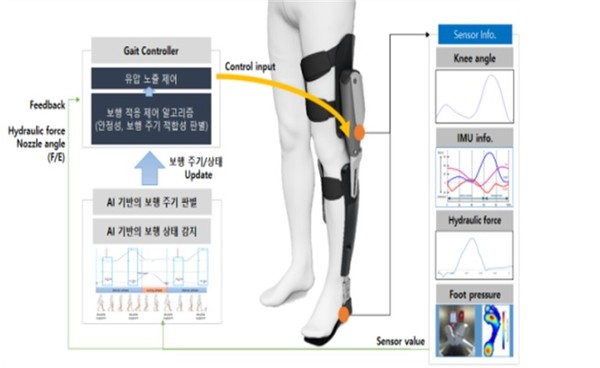The Rehabilitation Engineering Research Center (RERC), affiliated with the Korea Workers’ Compensation & Welfare Service, said it would participate in a civil-military partnership program to help people with gait disorders walk more easily.
The RERC has been selected as the lead research institute to carry out a project to develop “AI-using knee bending control type knee joint orthosis,” jointly invested by the Ministry of Trade, Industry and Energy, and the Defense Acquisition Program Administration.

The RERC signed an agreement with Alphao and Yonsei University for joint research.
The RERC said it would use the Agency for Defense Development (ADD)’s “wearable leg support device capable of knee bending” to develop an assistive technology to help people with gait disorders have smooth walking.
The government allocated 1.4 billion won ($1.17 million) for the research project for two years.
The new technology for a walking device will be used for patients with knee ligament and muscle injuries occurring in civilians and the military and for those with incomplete paralysis caused by polio, cerebral palsy, brain damage, spinal cord damage, and sarcopenia.
The AI-using technology will accumulate and analyze information of gait motion using the precision complex sensor installed in the orthosis. Then, it can provide big data available for research on gait function resilience and rehabilitation medicine, contributing to the advancement of medicine.
Advanced countries are also developing such AI-backed, high-value-added technology to prepare for a super-aged society. The RERC plans to secure a homegrown technology of a state-of-the-art rehabilitation device and enter the global market.
“By participating in a civil-military technology partnership project, I hope that the defense technology could greatly contribute to the nation’s advancement in healthcare and social welfare,” said Kang Soon-hie, president of the Korea Workers’ Compensation & Welfare Service.
The agency will continue to help improve the quality of life of the socially disadvantaged, such as the disabled and the elderly and patients with physical disabilities, and help them return to social life through the development of excellent high-tech products and medical welfare technology, Kang said.

